Quickly learn the street photography fundamentals you need to know so you can capture great photos!
Designed to help you conquer the philosophy and fundamental techniques of street photography, this handy and ultra-portable quick reference Pocket Guide helps you get the shot when you’re out on the streets. Follow...
Read More
Street Photography: Pocket Guide
Camera Setup, Shooting Approaches and Techniques, Street Portraits, Projects, and More
Rocky Nook
Best-Sellers, Ebook, Photography, Pocket Guides, Print, Print and digital bundle, Specialized Topics, StreetQuickly learn the street photography fundamentals you need to know so you can capture great photos!
Designed to help you conquer the philosophy and fundamental techniques of street photography, this handy and ultra-portable quick reference Pocket Guide helps you get the shot when you’re out on the streets. Follow along with documentary and street photographer Brian Lloyd Duckett, and you will:
- • Learn the three main approaches to street photography
- • Set up your camera for street photography
- • Develop a “street mindset” and build your confidence
- • Use the most effective shooting techniques
- • Find ideal locations for your photography
- • Understand what it takes to make a successful street portrait
- • Learn about the importance of shooting projects
Read Less
- Print and eBook Bundle: $24.99
- Print Book: $14.95
- eBook: $11.99
Product ID: 2440424
SKU: 1291
Categories: Best-Sellers, Ebook, Photography, Pocket Guides, Print, Print and digital bundle, Specialized Topics, Street
| BOOK AUTHOR | Rocky Nook |
|---|---|
| PAGE COUNT | 56 pages |
| TRIM SIZE | 3.5 x 5.125in |
| COVER | Spiral Bound |
| ISBN | 9781681989198 |
| PUBLISH DATE | 10/2022 |
- Pre-Shoot Checklist
- Street Photography Fundamentals
- Camera Setup
- Street Techniques
- Street Portraits
- Shoot Projects
- Build Your Confidence
- Law & Ethics
2 reviews for Street Photography: Pocket Guide
Add a review Cancel reply
You must be logged in to post a review.
Related products
-
Chroma
Ebook, Lighting, Photography, Popular Techniques, Print, Print and digital bundle, Specialized Topics This product has multiple variants. The options may be chosen on the product page $31.99 – $49.99Price range: $31.99 through $49.99Chroma
Ebook, Lighting, Photography, Popular Techniques, Print, Print and digital bundle, Specialized Topics This product has multiple variants. The options may be chosen on the product page $31.99 – $49.99Price range: $31.99 through $49.99 -
Mastering the Nikon D850
Camera Brands, Darrell Young, Ebook, Nikon, Photography, Print, Print and digital bundle This product has multiple variants. The options may be chosen on the product page $44.99 – $59.99Price range: $44.99 through $59.99Mastering the Nikon D850
Camera Brands, Darrell Young, Ebook, Nikon, Photography, Print, Print and digital bundle This product has multiple variants. The options may be chosen on the product page $44.99 – $59.99Price range: $44.99 through $59.99 -
The Landscape Photographer’s Guide to Photoshop
Ebook, Image Editing, Landscape, Photography, Photoshop, Popular Techniques, Specialized Topics This product has multiple variants. The options may be chosen on the product page $39.99 – $59.99Price range: $39.99 through $59.99The Landscape Photographer’s Guide to Photoshop
Ebook, Image Editing, Landscape, Photography, Photoshop, Popular Techniques, Specialized Topics This product has multiple variants. The options may be chosen on the product page $39.99 – $59.99Price range: $39.99 through $59.99 -
Best Business Practices for Photographers, Third Edition
Ebook, Photography, Print, Print and digital bundle This product has multiple variants. The options may be chosen on the product page $58.99 – $74.99Price range: $58.99 through $74.99Best Business Practices for Photographers, Third Edition
Ebook, Photography, Print, Print and digital bundle This product has multiple variants. The options may be chosen on the product page $58.99 – $74.99Price range: $58.99 through $74.99
Related products
-
David Busch’s Nikon D850 Guide to Digital SLR Photography
Ebook, Nikon, Photography, Print, Print and digital bundle This product has multiple variants. The options may be chosen on the product page $35.99 – $54.99Price range: $35.99 through $54.99David Busch’s Nikon D850 Guide to Digital SLR Photography
Ebook, Nikon, Photography, Print, Print and digital bundle This product has multiple variants. The options may be chosen on the product page $35.99 – $54.99Price range: $35.99 through $54.99 -
David Busch’s Canon EOS Rebel T7i/800D Guide to Digital SLR Photography
Camera Brands, Canon, David Busch, Ebook, Photography, Print, Print and digital bundle This product has multiple variants. The options may be chosen on the product page $31.99 – $49.99Price range: $31.99 through $49.99David Busch’s Canon EOS Rebel T7i/800D Guide to Digital SLR Photography
Camera Brands, Canon, David Busch, Ebook, Photography, Print, Print and digital bundle This product has multiple variants. The options may be chosen on the product page $31.99 – $49.99Price range: $31.99 through $49.99 -
Out of stock
David Busch’s Canon EOS 6D Mark II Guide to Digital SLR Photography
Camera Brands, Canon, Ebook, Photography, Print, Print and digital bundle This product has multiple variants. The options may be chosen on the product page $31.99 – $49.99Price range: $31.99 through $49.99David Busch’s Canon EOS 6D Mark II Guide to Digital SLR Photography
Camera Brands, Canon, Ebook, Photography, Print, Print and digital bundle This product has multiple variants. The options may be chosen on the product page $31.99 – $49.99Price range: $31.99 through $49.99 -
Out of stock
The Dramatic Portrait
Ebook, Lighting, Photography, Popular Techniques, Portrait, Print, Print and digital bundle This product has multiple variants. The options may be chosen on the product page $40.99 – $54.99Price range: $40.99 through $54.99The Dramatic Portrait
Ebook, Lighting, Photography, Popular Techniques, Portrait, Print, Print and digital bundle This product has multiple variants. The options may be chosen on the product page $40.99 – $54.99Price range: $40.99 through $54.99

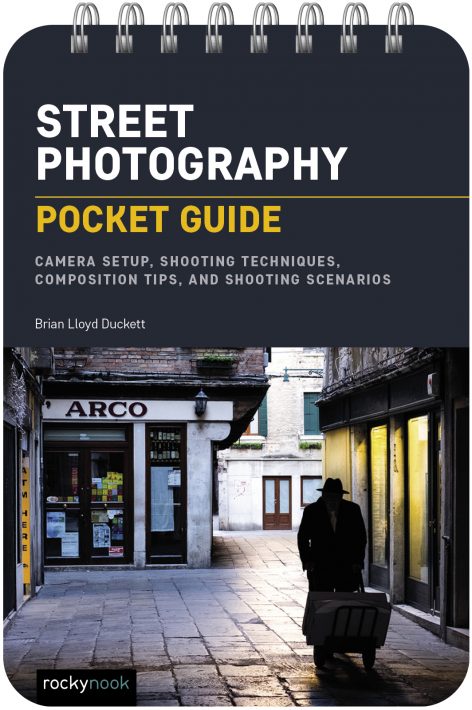
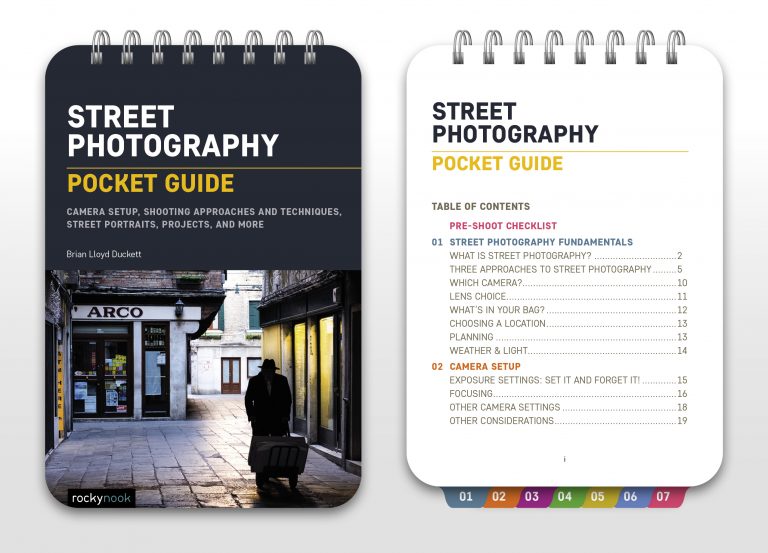
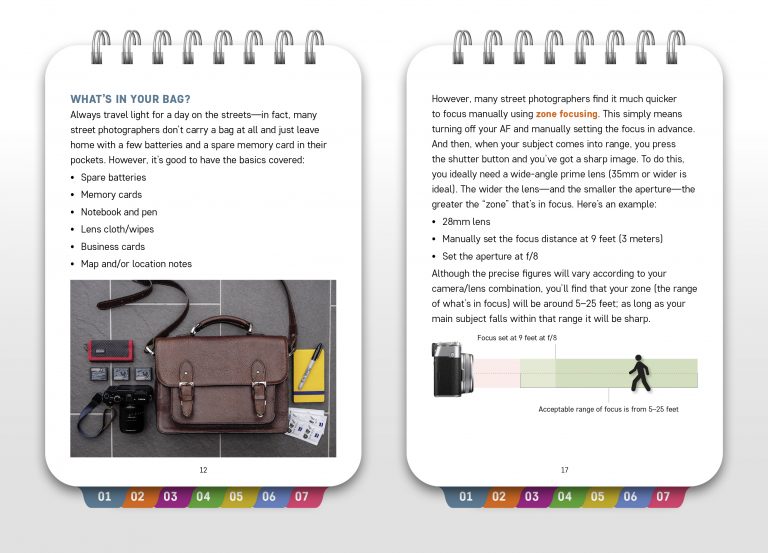
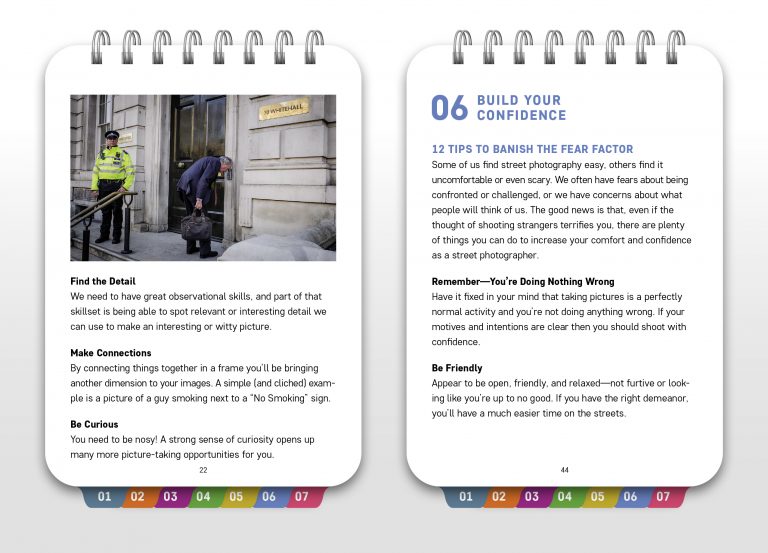

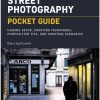
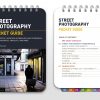
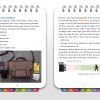
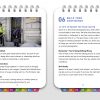
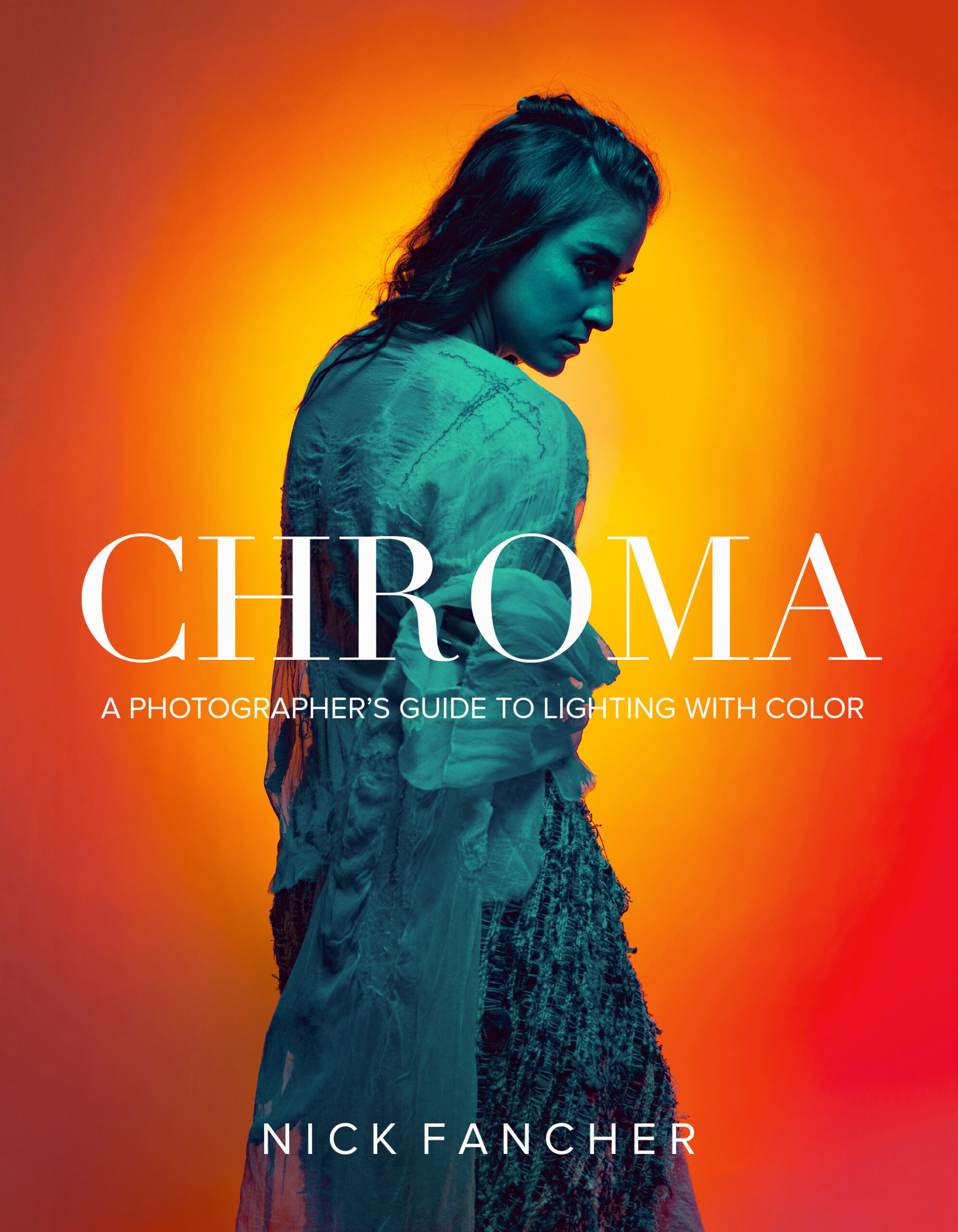

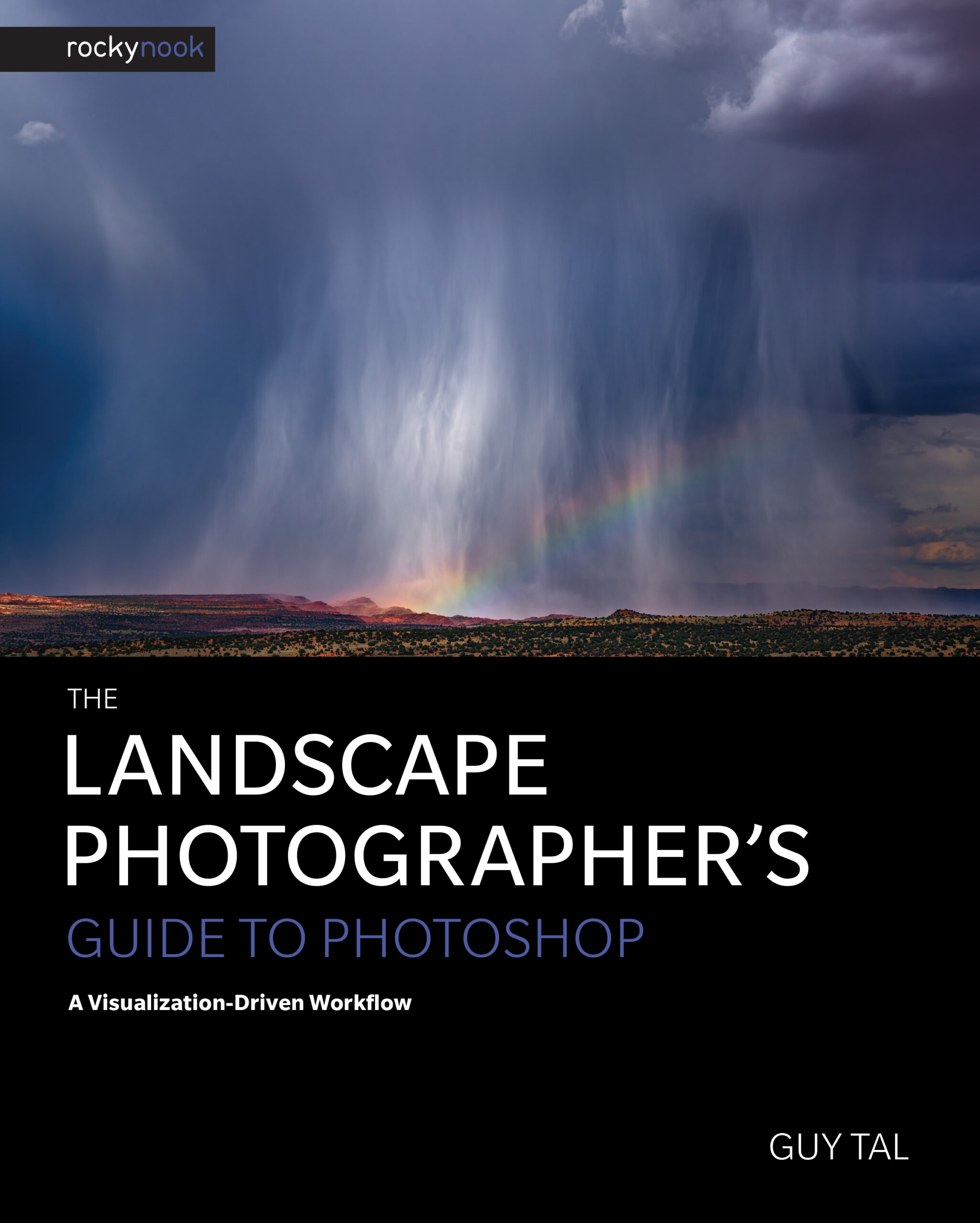
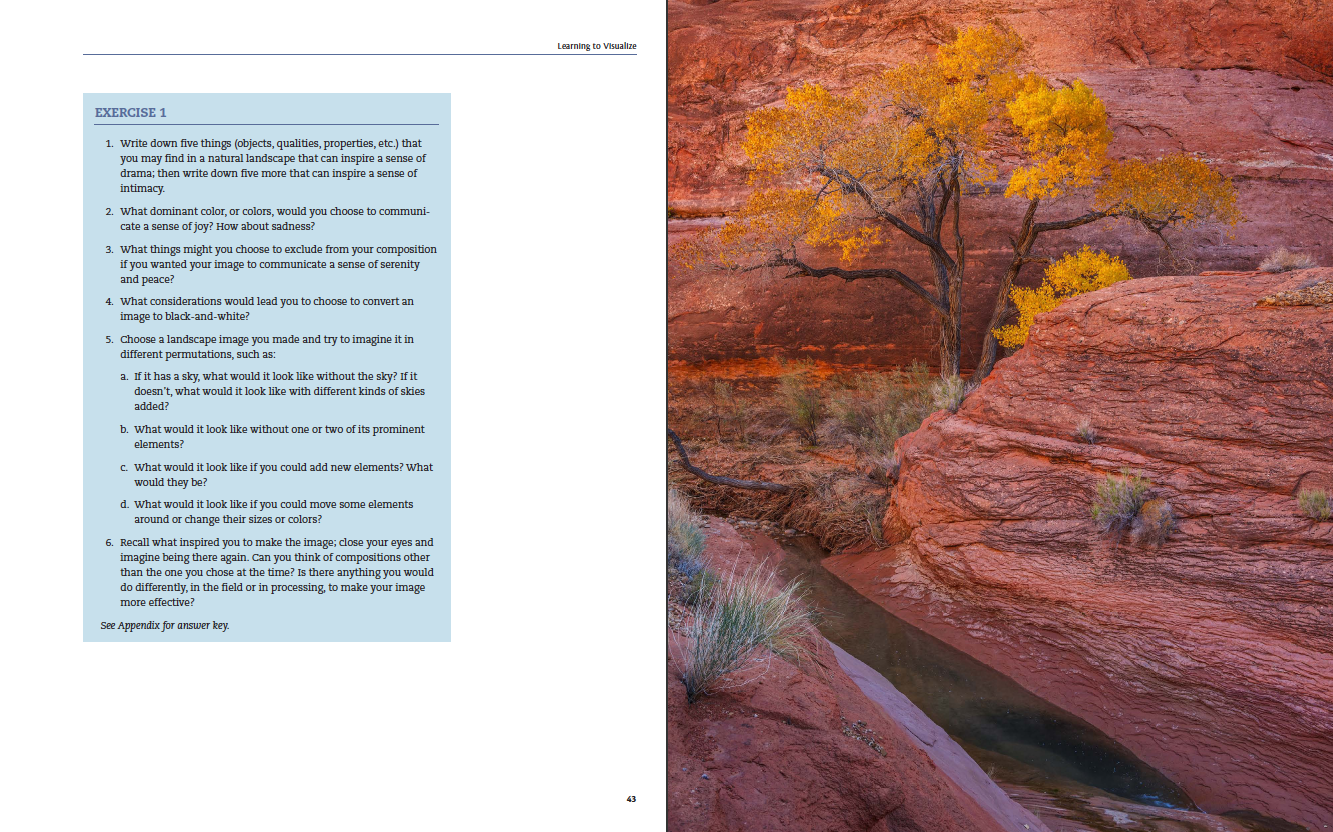
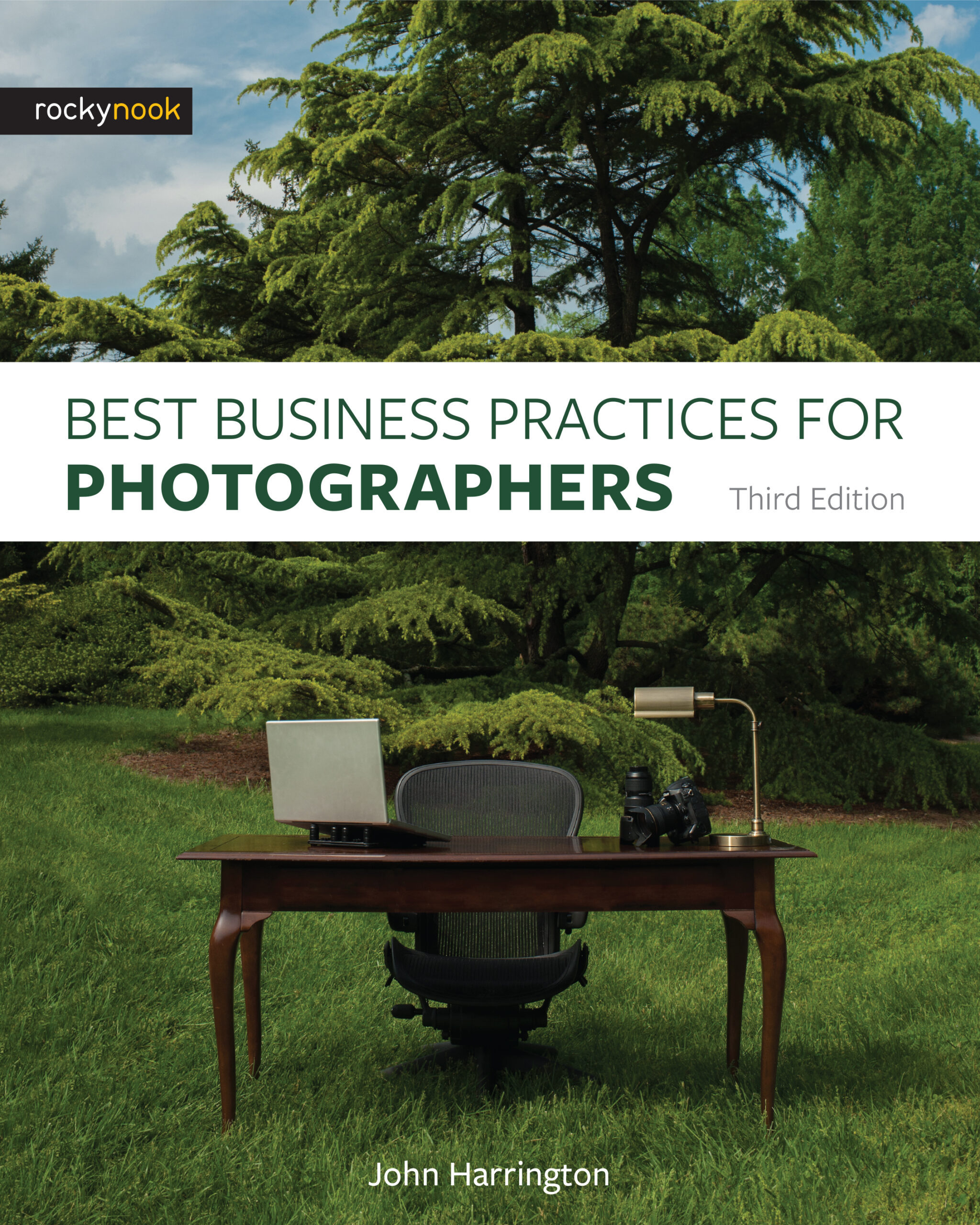
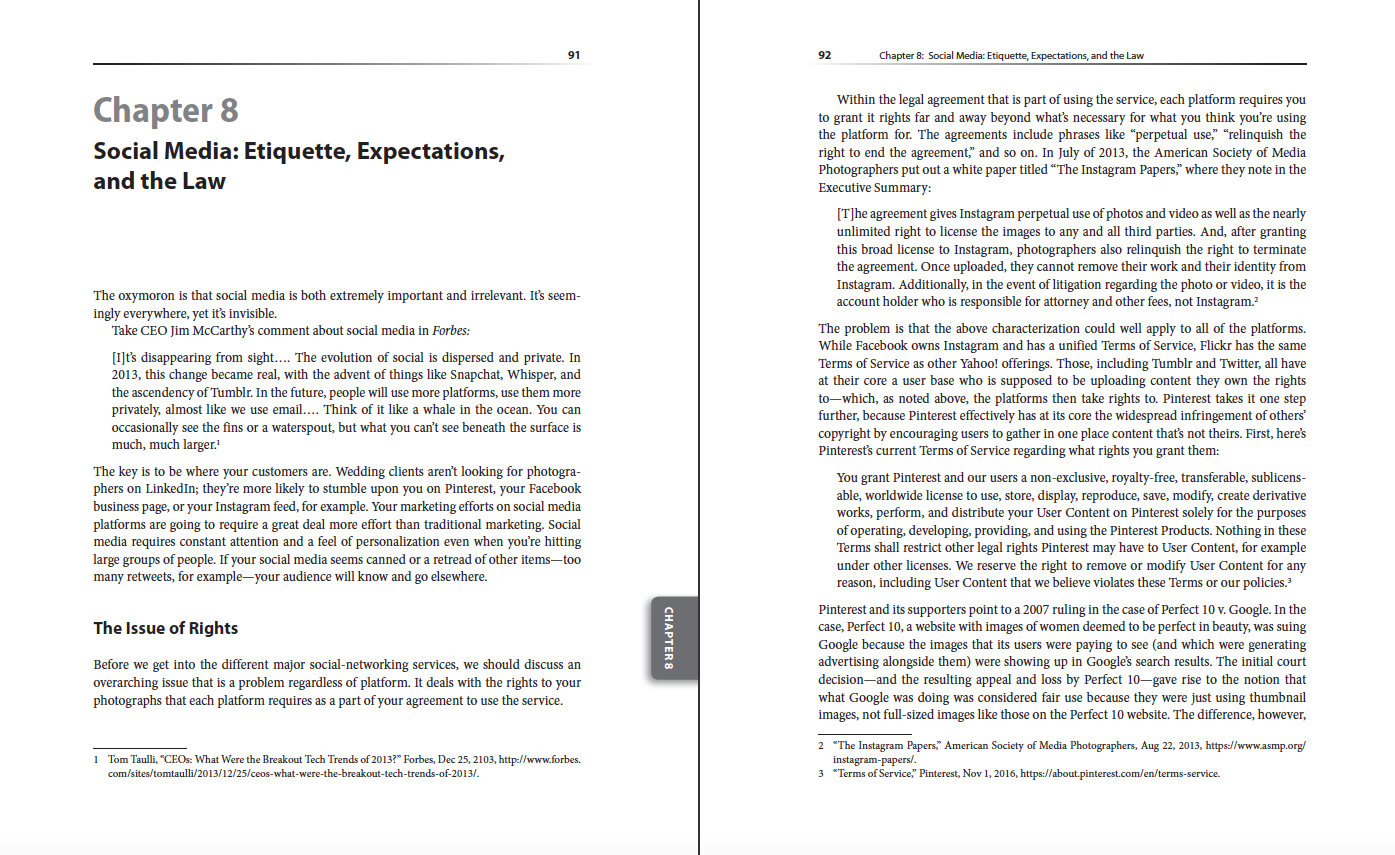
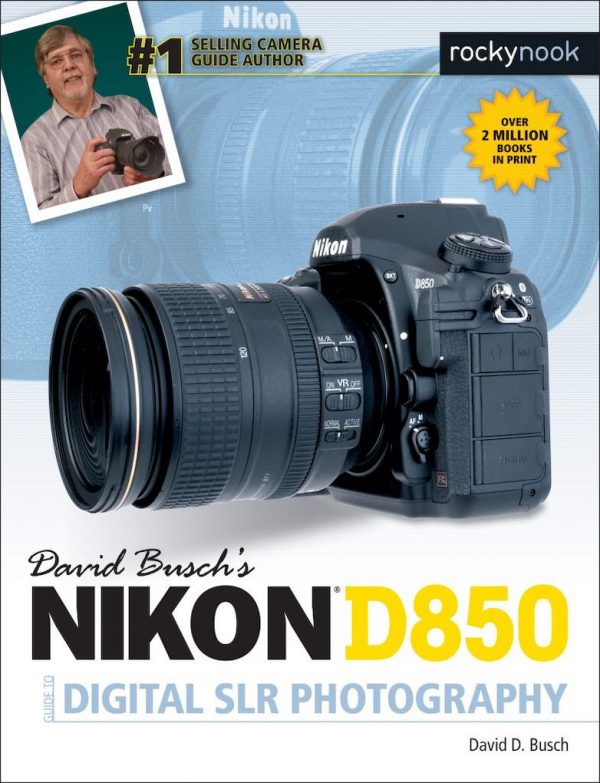
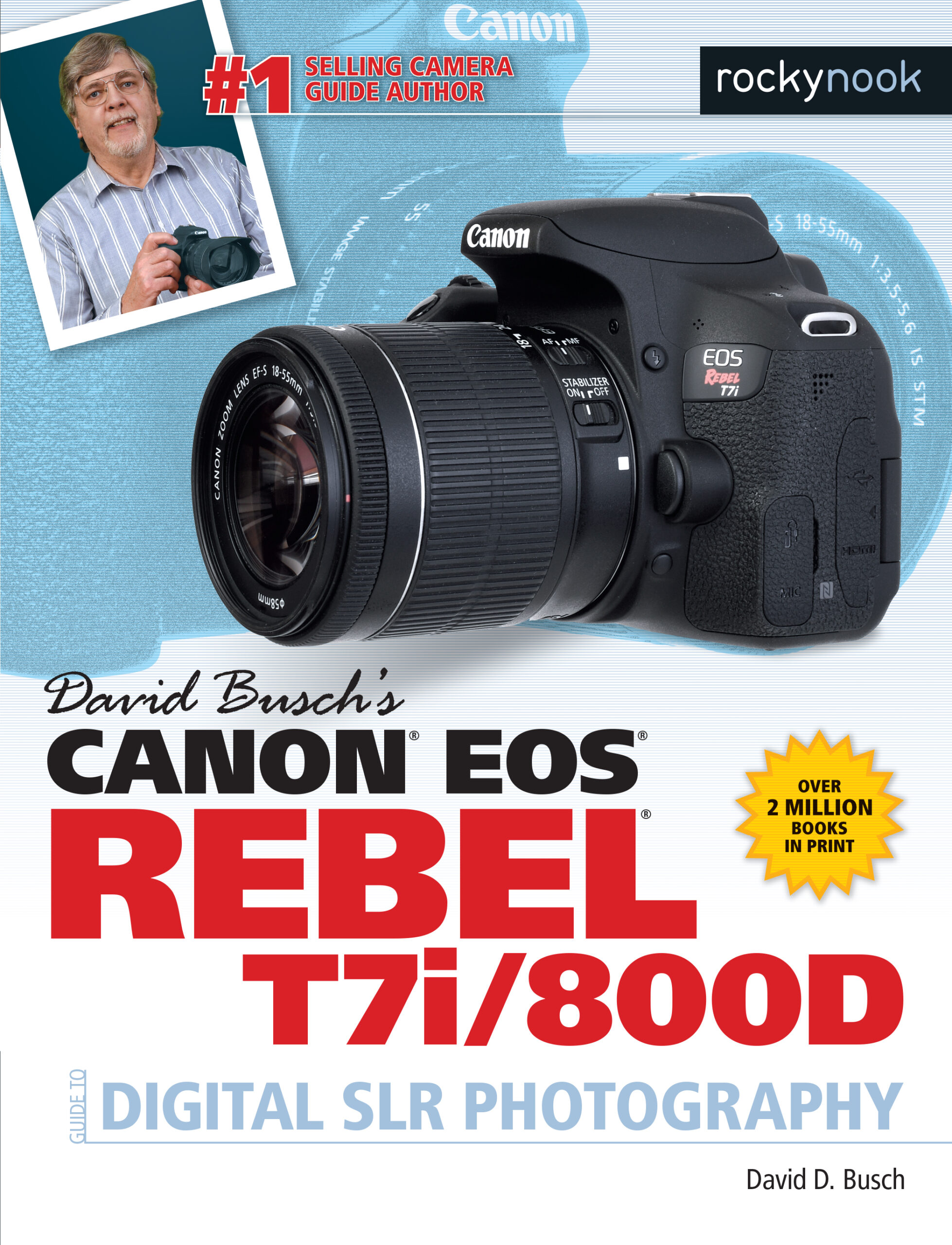

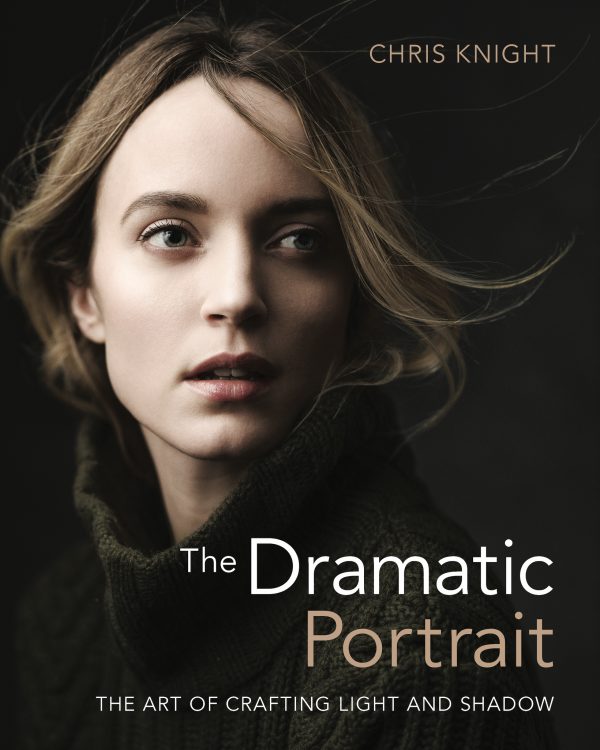
Gloria
Well, I know this book is well done and useful because it starts off with a pre-shoot checklist. Gives us a list of the most important settings, and then, parallel to that, a list that’s blank, so that you can input your preferred settings. Since this book is definitely pocket-sized, and can be taken out on the streets, the checklist will be easy to reference on the spot.
I have read other street photography guides, but this one, even in the first few chapters, offers a different and very helpful set of techniques. For example, Duckett points out that there are three approaches to street photography: the “moment“ approach, the aesthetic approach, and the narrative approach. I can’t recall reading about this way of looking at street photography before and it really does help organize and plan what I am looking for when I go out shooting. The author doesn’t waste our time, and is most efficient in advising us. On just one short page, he tells us to make sure the camera’s noises are disabled, that the sleep function is turned off so that you’re always ready to shoot, that you should use the silent shutter mode, to avoid chimping, etc. seriously, I have learned more, and been reminded of more in reading just the first several pages then I generally glean from several chapters of other guides. Well done!
The author advises that we decide whether we are going to shoot in color or black-and-white before we begin our project. I think he is right. Black and white shooting has different things to consider and this book lays them out for us.
Great section on street portraits: it raises the question of whether a posed street portrait is really street photography. I’ve never really thought about that but it does give us very useful tips on how to shoot a good street portrait, including choosing the right subject. I like one of their tips especially: don’t rush things. I often feel that I can’t take people’s time but the guide is right that you will get much better outcomes if you take your time and get the shot you want.
Toward the conclusion of the guide it gets even better in my estimation. Duckett tells us how to deal with our fear of photographing strangers on the street. So helpful! First tip is to remember that you are doing nothing wrong 🙂 The guide includes a section on law and ethics which is critical in street photography. We don’t worry too much about the law with wildlife, except not to scare or harm an animal. It’s way more complicated with humans.
This guide is truly the best guide I can remember reading on street photography and, best of all, it’s brief and to the point. It’s brevity also means that I can re-read it before I go out there. I highly recommend this if you want to try, and even if you already do, street photography.
wepsphoto
Street Photography Pocket Guide is an excellent read- concise and yet comprehensive, it covers everything from defining the genre to advising on gear and shooting techniques.
The author, Brian Lloyd Duckett, is clearly well-versed in street photography. Defining the genre, he identifies three varied types of street photography- the moment, the aesthetic and the narrative approaches. This greatly clarifies what is commonly misunderstood about the terminology used when discussing street photography.
Duckett discusses gear in the most general way- he avoids listing brand and model names, a relief at a time when so many photography books seem determined to promote brands within their training. The gear is minimal in street photography- it’s far more based on subject and shooting style. Varied techniques in developing a method and approach to shooting in a candid and spontaneous way are examined. Street portraits are examined as a special situation, one that usually requires permission and even posing advice before shooting, which the author admits may cross the “street photography” line to some people, yet it provides opportunities and even safety that justifies bending the rules.
There is also discussion about planning projects in street photography, creating both a theme and purpose to one’s work. And while the author acknowledges that there are worldwide variations that photographers must be aware of, he discusses general legal and ethical considerations of street photography.
There are a few peculiar ideas presented. On the one hand, Duckett discusses “authentic shooting” by avoiding film simulations (despite the fact that the Fuji X100-series cameras, currently the most celebrated street photography cameras and even appearing in the guide, excel at these simulations specifically for street photography) and shooting in raw (a format that absolutely requires post-processing- this simply changes the time that the image is manipulated from when it is shot to later in the digital darkroom). He also recommends “shooting in black and white”- an impossibility when shooting in raw since color data is always recorded in a raw file (with the exception of select Leica B&W-only bodies) unless you are shooting in a black and white film simulation. There is also an odd suggestion to use zone focusing as a means of faster subject acquisition while shooting at a standard f/8 aperture- today’s cameras can hit focus almost instantaneously and there is no need to avoid selective focus by using such a narrow aperture. These are personal preferences that need not be adopted to be successful.
Street Photography Pocket Guide is designed as a small, pocketable carry-along but in fact there is little that would need to be accessed in the field in this guide; rather, this is an excellent, albeit brief, book about street photography. When purchased directly from Rocky Nook, a PDF is included which makes it ideal for reading on an iPad or other tablet/screen. Either way, this guide beautifully explains street photography and can engage a photographer in this genre through a quick and enjoyable read.